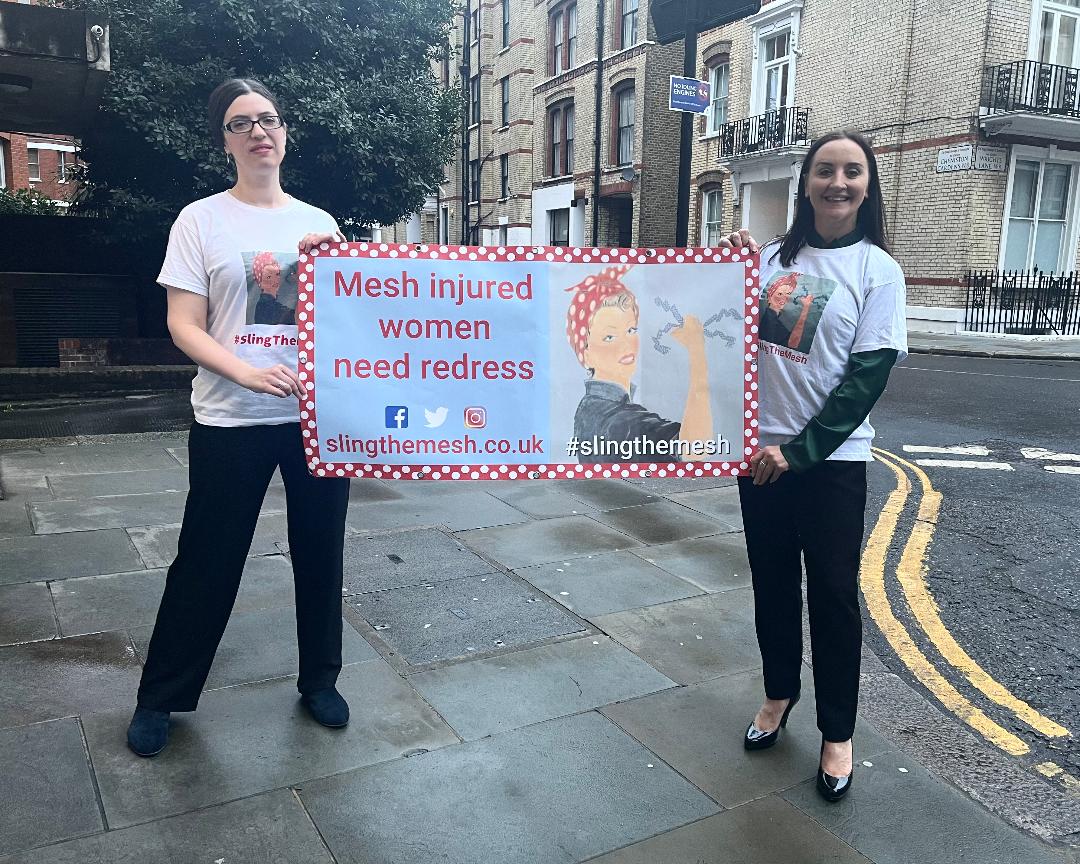What is the campaign about?
Mesh implants are used to treat prolapse, female and male stress incontinence, hernias and some breast reconstructions following mastectomy. It is also used in some animal surgeries.
Surgical mesh is a permanent polypropylene plastic implant used to support weakened tissue, but it can fragment, twist, degrade or shrink to slice into nerves, tissue and organs. The plastic material can cause autoimmune diseases and trigger allergic reactions, including psoriasis, fibromyalgia, irritable bowel syndrome, Lichen sclerosus, lupus, food allergies and intolerances.
Removing mesh implants is major, complex surgery. Some patients improve, some are worse and others see no difference – as found in the Sling The Mesh Survey 2019.
Mesh was rushed to market using the flimsiest of evidence. New products continue to be approved using a flawed medical device approval system known as equivalence in Europe and the 510K system in the US. Long-term complications are not captured globally.
This article by Jonathan Gornall describes how mesh became a four-letter word.
Key objectives
- Raising awareness of mesh implant risk.
- Calling for tougher regulations and oversight of medical devices to improve patient safety.
- Campaigning for the implementation of all nine First Do No Harm key recommendations.
- A Sunshine payment system for the UK forcing industry to declare all payments made to doctors, researchers and teaching hospitals as outlined in S92 of the Health & Social Care Act 2022.
Latest from Sling The Mesh
- Mesh posters for GP surgeriesOur campaign aims to raise awareness among healthcare professionals, with eye-catching posters for display in GP surgeries or hospital waiting rooms.
- Mesh legal claims – leaflets from 2000 and 2003For anyone taking out a medical negligence case about pelvic mesh then the following may prove useful for your law firm.
- Sling The Mesh in the news: 2024News headlines, features and discussion about Sling The Mesh in 2024.
- Thousands of women harmed by pelvic mesh deserve redressWe welcome a report by the Patient Safety Commissioner which recommends financial redress for women who’ve had lives destroyed by pelvic mesh.
- Pessaries for prolapseTOPSY study into pessaries for prolapse could change practice in the UK and beyond, according to one of the authors.
- Men’s mesh slings have devastating complicationsMesh slings made of the same polypropylene plastic as suspended women’s slings have been implanted into nearly 200 UK men suffering incontinence after prostate cancer.
- Groundhog dayA new study from Amsterdam claims an absorbable mesh containing polyester is safe after testing on just 17 women for two years.
- Not everyone gets £1millionA mother left in debilitating pain and faecally incontinent from vaginal mesh has been awarded a record settlement of at least £1 million.
- Toughen up transparency – our letter to governmentSling The Mesh led a coalition urging the government to toughen up plans forcing industry to publicly declare the millions it gives to the health sector each year.
- Email Rally: who is funding our doctors voice?The mesh scandal must never happen again. Which is why we’re calling on anyone who cares about safe healthcare to get involved in our Sunshine Email Rally.
- Sunshine Consultation – why you should careFollowing years of lobbying by Sling The Mesh followed by the First Do No Harm review, the government is running a six-week consultation on the potential for a Sunshine Payment Act in the UK.
- Mesh – a game of chessAs we celebrate New Zealand’s suspension of mesh slings for incontinence due to safety concerns, new evidence from Canada published just two days earlier promotes the same product as an effective treatment option.













